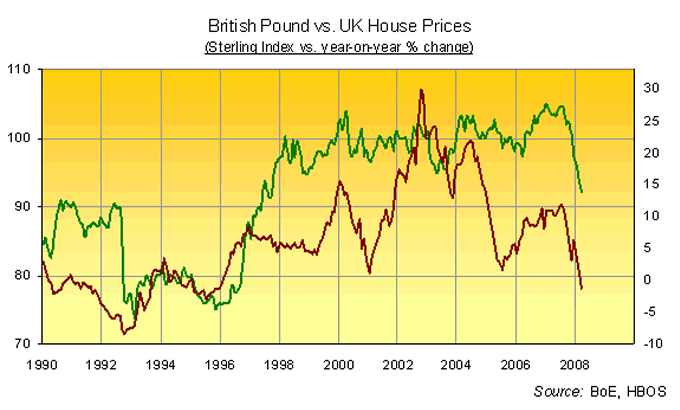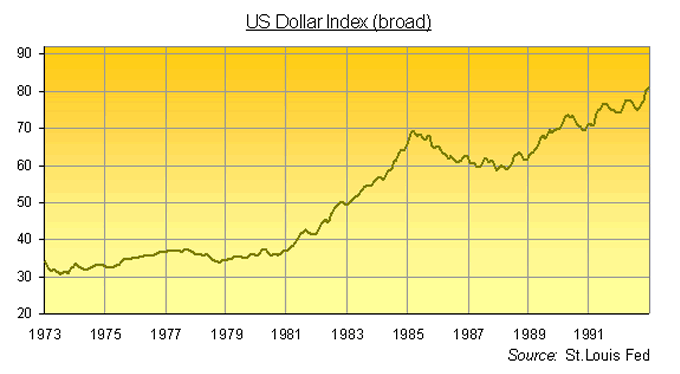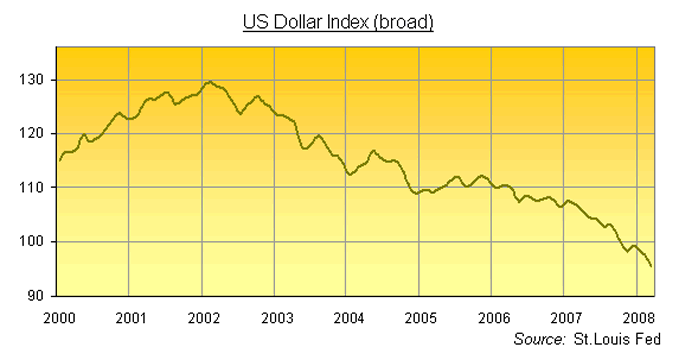IMF Gold Sales- Rich West Sells Gold; Asian Nations Sell US Dollars?
Commodities / Gold & Silver Apr 09, 2008 - 01:46 PM GMTBy: Adrian_Ash
 "...The growing call for pan-global government intervention might just throw up a ' Reverse Plaza ' sometime soon in the future..."
"...The growing call for pan-global government intervention might just throw up a ' Reverse Plaza ' sometime soon in the future..."
WELL, WHAT A BUSY WEEK for the International Monetary Fund! And it's barely half-way through ( as of Wednesday ).
Just how busy will the IMF get when it helps host the G7 meeting of policy wonks from the world's seven richest nations in Washington this weekend?
Rumors were that finance ministers from Europe, Japan, the UK, Canada and of course the United States wanted to chew over joint intervention in the currency market – buying Dollars to support the US currency, easing the surge in commodity prices and helping export-dependent economies avoid a race-to-debase as they try to stay competitive.
But could they really be so dumb...?
 On Monday the IMF's managing director, Dominic Strauss-Kahn, called for concerted cross-border intervention and regulation by national governments to stem the ongoing global banking crisis.
On Monday the IMF's managing director, Dominic Strauss-Kahn, called for concerted cross-border intervention and regulation by national governments to stem the ongoing global banking crisis.
On Tuesday the IMF then laid out plans to re-organize its own finances, selling 400 tonnes of gold reserves to help cover a $400 million deficit in its $1 billion budget.
Tuesday night saw the IMF warn that total write-downs (i.e. balance sheet losses) due to the collapse of subprime US mortgage lending may reach $945 billion.
"It is now widely acknowledged that public measures are needed in a number of areas," claimed the IMF – established at the end of World War II to help keep the world's financial system in check, with the newly-crowned US Dollar as king of world currencies.
"In particular," the IMF added, "there may be a need to shore up the prices of various types of securities to prevent fire sales."
And then on Wednesday, the IMF cut its forecast for world economic growth in 2008 to 3.5% from the 4.2% it had predicted only three months before.
"Further," says the head office of analysis and advice for 185 member nations, "world growth would achieve little pickup in 2009, and there is a 25% chance that the global economy will record 3% or less growth in 2008 and 2009, equivalent to a global recession."
Pretty much the entire globe has been downgraded by the IMF's chief economist, Simon Johnson, starting with a "mild recession" in the United States . Which leaves him, oddly enough, scratching his head at the collapse of the US Dollar.
"The effect of the financial turmoil in the United States has been to lower the prospects of growth," he said in Wednesday's World Economic Outlook 2008 . "But – somewhat paradoxically – it has also increased oil prices, metal prices, and of course food prices."
How paradoxical exactly? As BullionVault began pointing out back in August 2007 , the subprime crisis might knock a hole in European and Japanese pension funds. But it remained a solely domestic US problem for all that the forex markets would care.
Plunging property prices tend to go hand in hand – squeezing on tight like a child in a crowd – with a falling exchange rate. Just ask British consumers about their 1990-92 slump in real estate prices.
Or ask them again, jabbing a thumb in their eye, about what's happened to Sterling since the latest house-price slump began in late-summer '07.

That's why the sudden surge in the Dollar of August last year presented investors and savers with such a fantastic opportunity to get ahead of the curve and defend their wealth.
The initial surge in the Dollar – which pushed the Euro down from $1.38 to $1.34 by the start of Sept. – came thanks to a dash for cash by the world's biggest banks.
The US Dollar being the world's No.1 money, cash equaled greenbacks. And selling everything else to raise money – for settling lost trades and client redemptions – the panic marked what might prove a last chance (during this Dollar bear market at least) to swap Dollars for gold below $700 per ounce.
And now? The very week that the IMF said it's going ahead with a gold sale of 400 tonnes (pending US approval, which looks a dead-cert), "it seems that dealing with the risks stemming from the behavior of private sector financial institutions may be the big focus for this coming weekend's G7 meeting in Washington ," note John Hardy at Saxo Bank.
"There are some calls to include currency issues on the agenda, but the G7 may once again have little to say on currencies, especially if the USD is not trading at new lows as the meeting gets under way.
"Even if it is trading at new lows, real intervention beyond verbal remarks is likely some way off," he concludes.
But the growing call for pan-global financial meddling looks sure to create a "Reverse Plaza Accord" sometime soon in the future.

"In view of the present and prospective changes in fundamentals," said the communique of 22 Sept. 1985 issued by the G5 rich nations from the Plaza Hotel in New York , "some further orderly appreciation in the main non-Dollar currencies against the Dollar is desirable.
Together, therefore, the big guns of the global economy "[stood] ready to cooperate more closely to encourage this when to do so would be helpful."
Put another way – which was entirely the point – the G5 would start selling Dollars and buying non-US currencies to cut down the looming "Super Dollar" that towered over the global economy.
(Those changing fundamentals, by the way, were that the United States had become a net debtor for the first time in 70 years. It's barely looked back...)
What now might cause "close cooperation" in reversing this strategy, buying Dollars to increase its value and thus aiding non-Dollar countries struggling to bear the costs of the Dollar's six-year decline?
"There is now agreement in the Eurozone about the fact that the depreciation of the Dollar is a problem," said an un-named French official to the International Herald Tribune back in December.
The finance wonks attending the next G7 meeting "have to pass the same message to the market," he went on. But so far – if they've passed on that message at all – it's been ignored.

Of course, it's not in the United States ' interest to see the Dollar go higher.
If you owed $9 trillion and you owned the printing press, wouldn't you be just fine with the idea of your debt being inflated away?
But the other G7 cronies, not to mention the poor Asian and Middle Eastern economies which continue to pile up greenbacks and T-bonds every time they do business...might they want to see some kind of "Reverse Plaza" enacted – and soon! – to support their stockpile of Dollars?
And with the International Monetary Fund standing ready to sell 400 tonnes of gold over the next couple of years, wouldn't it make a great deal for the central banks of Beijing and Japan ?
As the GFMS consultancy here in London points out, China holds barely 1% of its foreign currency reserves in gold at the moment. The rest, pretty much, is in Dollars. The Japanese do little better with a 2% gold holding. They just broke the $1 trillion-mark in USD, on the other hand.
If this swap – the West's gold for Asia 's Dollars – comes off sometime soon, you won't have to simply stand by and watch this transfer of wealth as if helpless. You could join the big switch – out of Dollars and into truly hard currency – starting today if you wish.
Or you could wait for that communique from the Beijing Plaza Hotel.
By Adrian Ash
BullionVault.com
Gold price chart, no delay | Free Report: 5 Myths of the Gold Market
City correspondent for The Daily Reckoning in London and a regular contributor to MoneyWeek magazine, Adrian Ash is the editor of Gold News and head of research at www.BullionVault.com , giving you direct access to investment gold, vaulted in Zurich , on $3 spreads and 0.8% dealing fees.
(c) BullionVault 2008
Please Note: This article is to inform your thinking, not lead it. Only you can decide the best place for your money, and any decision you make will put your money at risk. Information or data included here may have already been overtaken by events – and must be verified elsewhere – should you choose to act on it.
Adrian Ash Archive |
© 2005-2022 http://www.MarketOracle.co.uk - The Market Oracle is a FREE Daily Financial Markets Analysis & Forecasting online publication.



